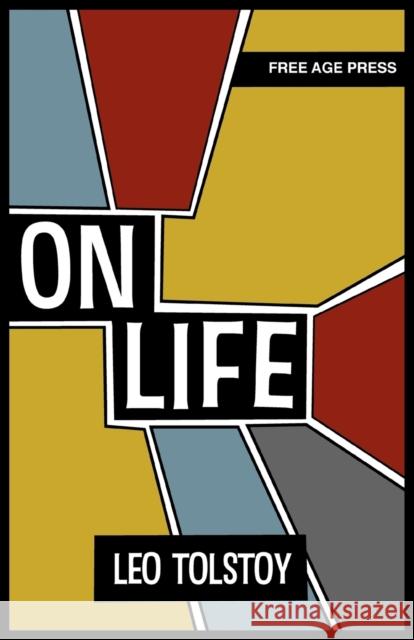On Life » książka
On Life
ISBN-13: 9781907355912 / Angielski / Miękka / 2010 / 180 str.
'On Life' and 'What is religion?' were published by the Fee Age Press in England; a publishing house set up to side-step the censorship of Tolstoy in Russia, and to give him an international voice. So what is life? 'Life is the sum of functions which resist death, ' says the scientist. But is it more than that, asks Tolstoy in 'On Life' - a philosophical and religious search for an understanding of life beyond scientific formulae. For Tolstoy, the basic contradiction for humanity is this: people aim solely for their own well being, but discover along the way that their own well being depends also on the well being of others. A further discovery by such people is that decay, old age and death attend their every step. Such basic human truths are the context for Tolstoy's search for happiness, in which Buddhist, Jewish, Stoic and Christian views are considered, as well as those of science. Tolstoy believes that fear of death is merely the consciousness of the unsolved contradiction of life; a sign of a carnal or animal mentality, which mistakenly takes part of life to be the whole. Tolstoy believes that individual well-being must be renounced and replaced by our 'reasonable consciousness', which points the way to true happiness, and brings human re-birth. 'What is religion?' is a collection of articles and letters written by the mature Tolstoy of 1901 and 1902. Here is a variety of subject matter, including a book review of a German novel; Tolstoy's response to his excommunication by the church; an attack on army recruitment and training and reflections on a recent political assassination. The title piece - 'What is religion?' is the most substantial, in which Tolstoy provides the following definition: 'True religion is the establishment by man of a relation to the infinite life around him; as long as connecting his life with this infinitude and directing his conduct, is also in agreement with his reason and human knowledge.' Simon Parke, author of The One Minute Mystic
On Life and What is religion? were published by the Fee Age Press in England; a publishing house set up to side-step the censorship of Tolstoy in Russia, and to give him an international voice.So what is life? Life is the sum of functions which resist death, says the scientist. But is it more than that, asks Tolstoy in On Life - a philosophical and religious search for an understanding of life beyond scientific formulae. For Tolstoy, the basic contradiction for humanity is this: people aim solely for their own well being, but discover along the way that their own well being depends also on the well being of others. A further discovery by such people is that decay, old age and death attend their every step. Such basic human truths are the context for Tolstoys search for happiness, in which Buddhist, Jewish, Stoic and Christian views are considered, as well as those of science. Tolstoy believes that fear of death is merely the consciousness of the unsolved contradiction of life; a sign of a carnal or animal mentality, which mistakenly takes part of life to be the whole. Tolstoy believes that individual well-being must be renounced and replaced by our reasonable consciousness, which points the way to true happiness, and brings human re-birth.What is religion? is a collection of articles and letters written by the mature Tolstoy of 1901 and 1902. Here is a variety of subject matter, including a book review of a German novel; Tolstoys response to his excommunication by the church; an attack on army recruitment and training and reflections on a recent political assassination. The title piece - What is religion? is the most substantial, in which Tolstoy provides the following definition: True religion is the establishment by man of a relation to the infinite life around him; as long as connecting his life with this infinitude and directing his conduct, is also in agreement with his reason and human knowledge. Simon Parke, author of The One Minute Mystic











